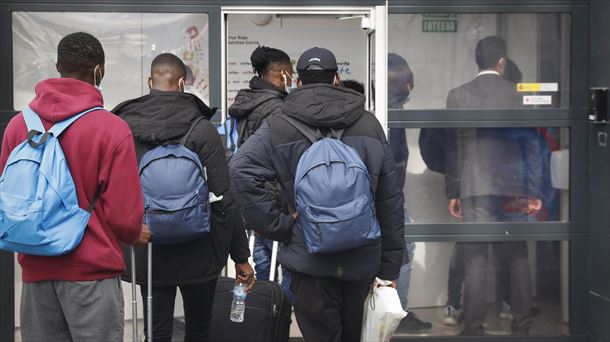Austria supplies Ukraine with a total of 20 ambulances. Eight of them were adopted on Friday by Chancellor Karl Nehammer (ÖVP) and the President of the Austrian Red Cross, Gerald Creator, in the presence of Ukraine’s Ambassador to Austria, Wassyl Chymynez, in Vienna. It is “the beginning of the relief and not the end,” Nehammer promised.
“As neutral Austria in the European Union community, we will help where we can,” said the chancellor, who again ruled out an embargo on Russian gas. “We will stand by your side,” Nehammer told Chymynez. He thanked both the federal government and the Austrian people for their “very strong support”.
Red Cross volunteers brought the eight rescue vehicles to Ukraine on Friday, where they will be collected and distributed by the Ukrainian Red Cross after a stopover in Hungary on Saturday. The vehicles are urgently needed but cannot be purchased due to the current crisis situation in Ukraine itself, said Red Cross chairman Creator. But also outside Ukraine, the delivery times for new ambulances are currently one year.
The city of Vienna says goodbye to 16 emergency vehicles
The used ambulances sent on Friday came from regional associations of the Red Cross – five from Upper Austria, one each from Vorarlberg, Salzburg and Burgenland. Twelve more follow. Nehammer had promised Ukraine help during his visit to Kiev in April. Already on Tuesday, the mayor of Vienna Michael Ludwig (SPÖ) said goodbye to 16 emergency vehicles provided by the city of Vienna – eleven fire engines and five ambulances.
Asked about further sanctions against Russia, Nehammer replied that these should harm the Russian regime and not the states that imposed them. “We are all striving to reduce dependence on Russian raw materials, but this must be done with a sense of proportion and reasonableness and must not endanger jobs and the economy and thus social peace in Austria,” said the chancellor, who therefore again ruled out a gas embargo against Russia.
Ambassador Chymynez understood that it was “not easy” to impose further sanctions, most notably a gas embargo, but stressed the importance of doing so. He was convinced that the EU would find further steps to increase and further weaken the pressure on the Russian regime.
Source: Krone
I’m an experienced news author and editor based in New York City. I specialize in covering healthcare news stories for Today Times Live, helping to keep readers informed on the latest developments related to the industry. I have a deep understanding of medical topics, including emerging treatments and drugs, the changing laws that regulate healthcare providers, and other matters that affect public health.



